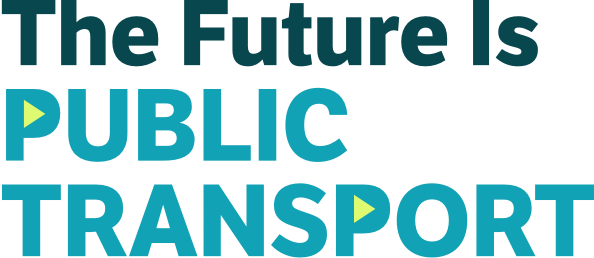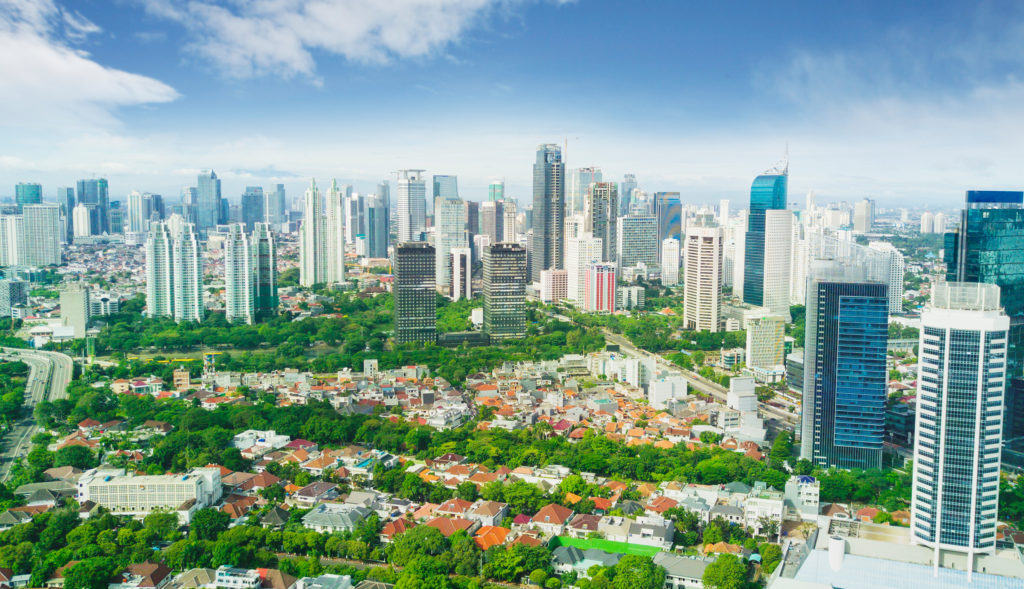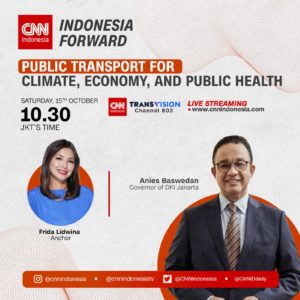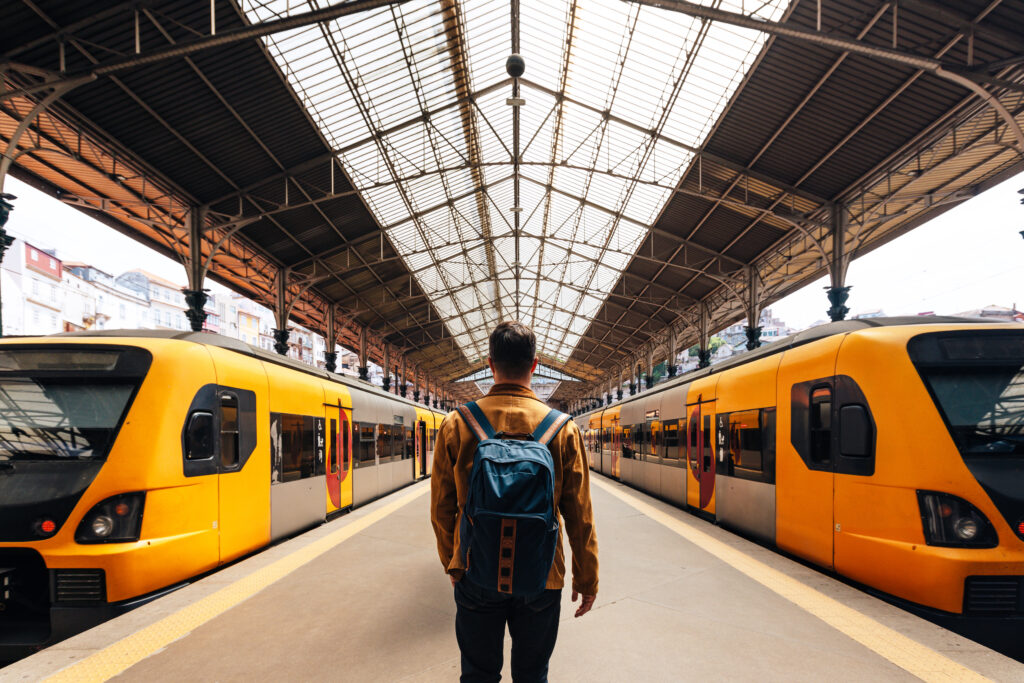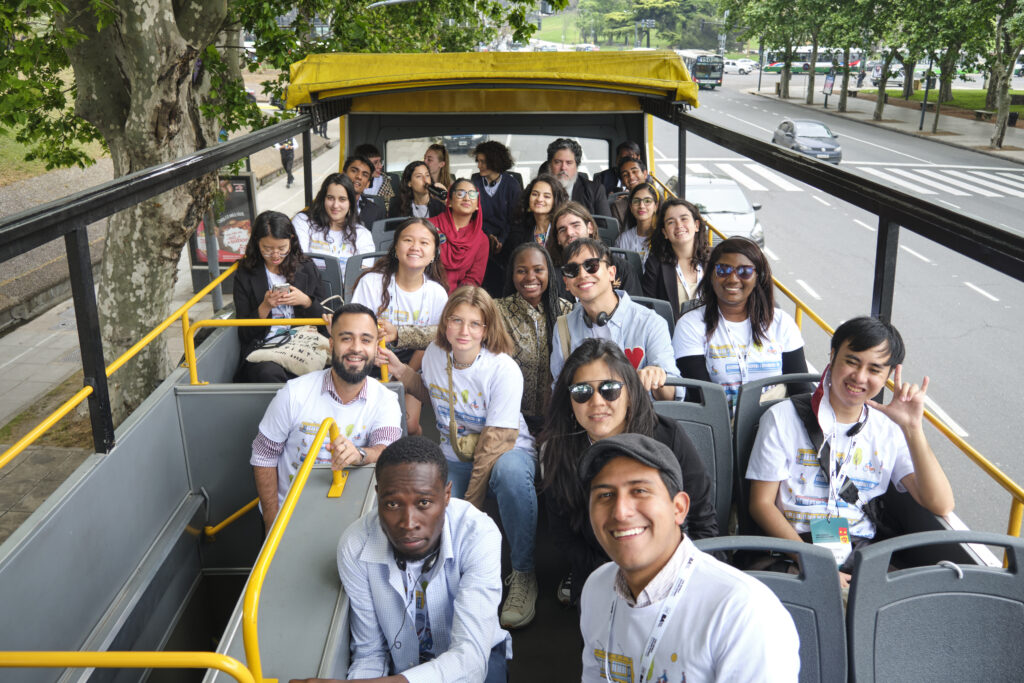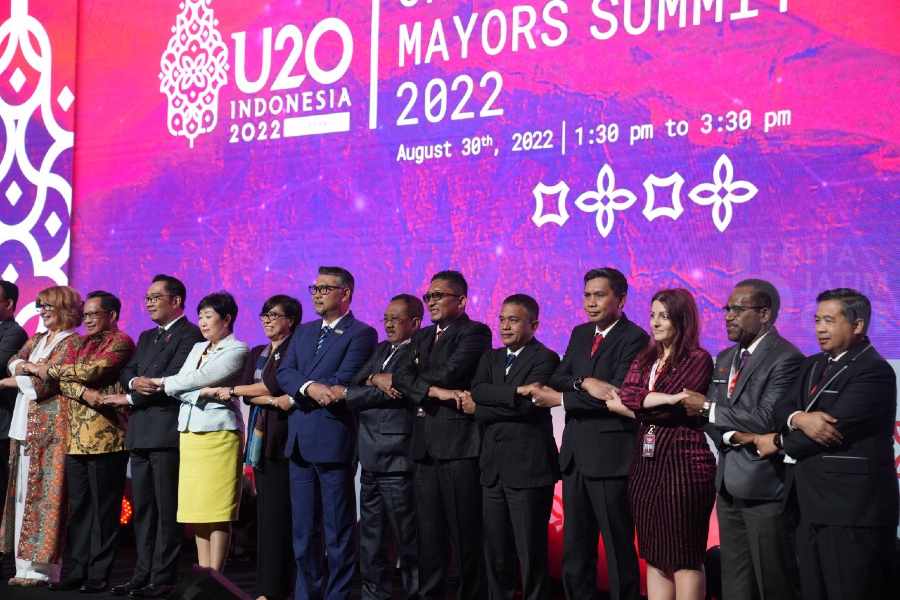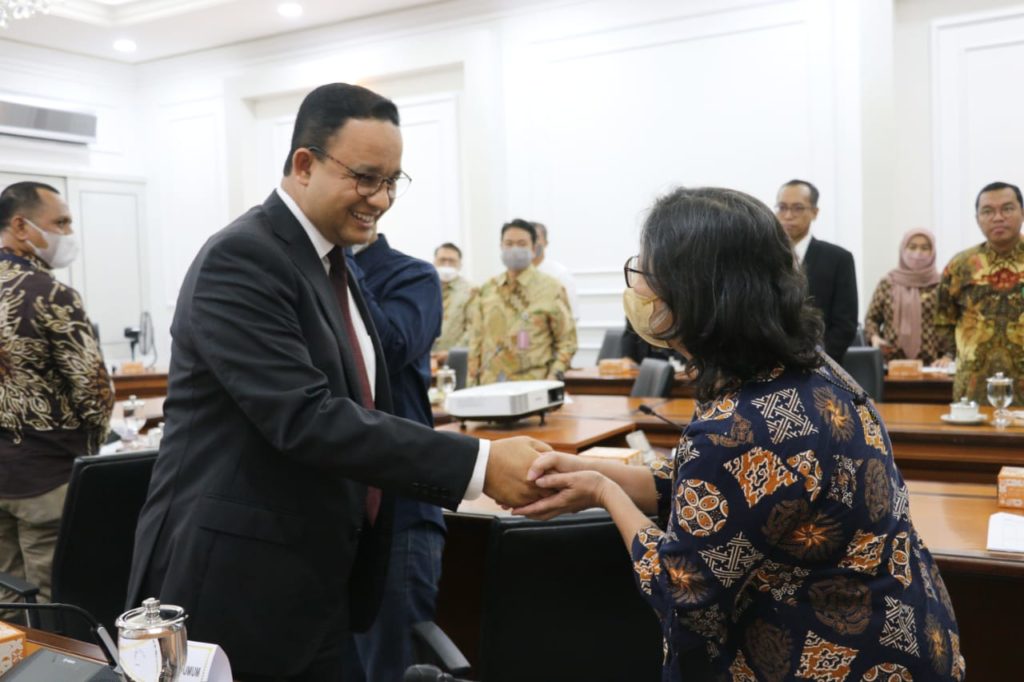Jakarta’s Governor urges “sustainable mobility and better air quality” in CNN interview
On 15th October 2022, CNN Indonesia Forward sat down with Jakarta’s Governor, Anies Baswedan, to discuss the success of Jakarta’s public transport expansion project, JakLingko, and how public transport can be an integral solution to stop the climate crisis.
By prioritising public transport, the city has set a leading example of city-led climate leadership. As the Governor notes, in just 4 years, from 2017-2021, “the city has doubled its public transport coverage from 42% to 82%”.
The initiative integrated the routes, payment systems and management of bus providers into its city model, to triple the number of citizens using public transport on a daily basis from 350,000 to 1 million.
This approach has brought multiple benefits to the city, such as improving citizens’ health and finance. Since the project’s launch, Jakarta has improved air quality to slide down world rankings from being the world’s third most congested city to the 46th. Lower fares have enabled citizens to save money, by “reducing their monthly spending on public transport from 30% to 8%”.
However, the city does not plan to stop its expansion here. As the Governor notes, a clear roadmap to expanding public vehicle electrification is needed “to reach the city’s target of a 30% reduction in greenhouse gas emissions by 2030”
To achieve this target, from now on, the city will only procure electric buses, so that “by 2030, all our buses, and all our fleets, will be electric”.
Jakarta is already on track to achieve this goal, with 40 electric buses already part of its fleet and 60 more being procured by the end of this year. In fact, through the JakLingko initiative, the city has already reduced greenhouse gas emissions by 26%. The Governor explains that “We are ahead of target. We have 4% to go in 8 years… So, I’m quite optimistic that perhaps around 2025 or 2026 at the latest, we will reach the 30% target”.
Jakarta is also moving ahead with the physical integration of different transport modes at stations, a notable example being the station redesign of the CSW intermodal transit hub to better connect the MRT service (serving 100,000 passengers a day) with the Transjakarta Corridors 1 (90,000 passengers a day) and 13 (25,000 passengers a day).
To conclude his interview, the Governor called on the essential support from national governments across the world to finance the transition to electric vehicles. Targets can only be achieved by setting a “common objective for the creation of sustainable mobility” and that this “is the kind of collaboration that is needed.”
Watch the interview in full on Youtube for an in-depth explanation of this pioneering and transformative project.
